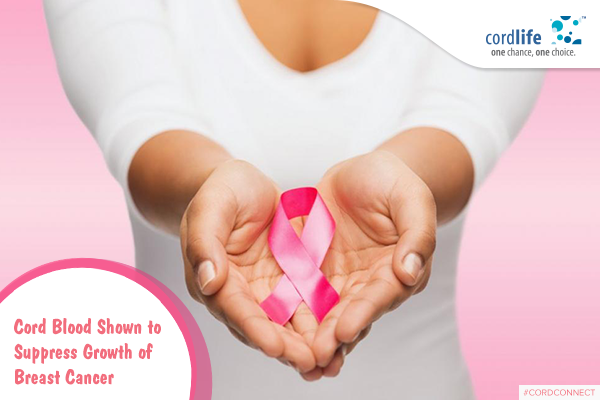Table of Contents
One of the most common forms of cancer amongst women globally is breast cancer. Once detected, there are three key elements that determine the course of treatment for breast cancer patients – diagnostic stage, receptor expression of steroids, and growth factors. Normal therapy during this condition includes a mixture of mastectomy, chemotherapy, and radiotherapy. However, in most cases, severe side effects have been noticed that has had a significant impact on the patient’s quality of life.
Multiple investigations conducted in the recent past have discovered that both human and rat umbilical cord matrix mesenchymal stem cells (UCMSC) have the power to limit the expansion of breast carcinoma cells. Whilst the actual mechanism of the tumour suppression process by naïve umbilical cord stem cells are still not wholly clear, quite a few instances have come forward during studies that have observed the immune systems of cancer-bearing rats that involve the induction of cell cycle arrest and/or apoptosis in tumour cells followed by an anti-tumour activation response. The mechanics of communication with adjacent cancer cells via the process of receiving and sending chemical signals in all likelihood occurs due to cytokines and growth factors. These investigative studies have shown that umbilical cord stem cells were able to suppress tumor growth by more than 90% in a 1:15 ratio, while human UCMSC suppressed the growth of human breast cancer cells by 50%. The mechanism for these differences is unknown, but it suggests that diverse cyclin-dependent kinases are regulated by rat and human UCMSC.
The present analysis revealed the modification of expression pattern in tumor suppressor genes in rat and human UCMSC when they were co-cultured with tumor cells. Nevertheless, it still remains unclear if the results will be similar if one co-cultured human breast carcinoma cells with human umbilical cord stem cells under in vitro and in vivo conditions.
Umbilical cord stem cells have a substantial potential to overcome tumor cells development in indirect co-culture which appears that UCMSC-dependent tumor cells growth inhibition is partially due to secretory proteins. Subsequently, through an evaluation of gene expressions profiles in rat and human UCMSC co-cultured with breast cancer cells may present the character of the key actors for the variance in tumoricidal capabilities in two types of UCMSC. Besides, recognition of the vital procedures in rat UCMSC dependent strong tumoricidal activity will be utilized to reinforce human UCMSC-dependent tumoricidal activity to the rat UCMSC level. In the present study, two tumor suppressor genes, ADRP and FST were found to be upregulated in rat UCMSC, whereas these two genes were down-regulated in human UCMSC when two types of UCMSC were co-cultured with corresponding species’ breast carcinoma cells. Therefore, these two gene expression differences in two types of UCMSC may explain their differential tumoricidal activities.
